|
Dear musician friends, Unfortunately, I think we’re all expecting January to be a very hard month. Omicron is going to cause all manner of disruptions across the US, and many of us will be spending a lot of time at home. Again. This feels eerily reminiscent of the day in March 2020 when I sat down to share some initial thoughts about musicianship in isolation. I suspect that in-person performances will largely be placed on pause during early 2022's viral surge, leading to not only the loss of income but also the loss of important and life-affirming opportunities to be together, warding off the impending accompanying surge in social isolation. With nearly two pandemic years under our belts, it will feel almost normal for ensembles and organizations to quickly pivot to sharing pre-recorded concerts to fill the empty spaces in our lives where the happily crowded venues are supposed to be. This approach certainly worked well for many organizations in 2020 and into 2021. However, instead of turning to these pre-recorded presentations, I’m writing to ask you to please consider the uniquely important opportunity at hand: As individual musicians, we can create moments of real connection, even if they are fleeting, from the safety of our own homes, and feature less-than-ideal production values. The essential quality is the vulnerability of the human-to-human connection, something that can only happen in real time, and something that, as musicians, Yes, Zoom fatigue is real. We don’t especially need more content to view on our devices, no matter how good that content is. If anything, what we need most is to get as close as we can to the irreplaceable feeling of sharing a space with another person, having that experience of intimacy, feeling connected. The Surgeon General feels strongly about this, too.
Here’s my wish for 2022, and please amend it as appropriate to your situation and resources. This winter, I would love to be able to tune in to evening live streams of musicians (especially musicians I know) sharing any solo works in their repertoire. After 9 pm on a dark and frigid January night? Even better because there are fewer potential distractions than during the productive hours of the day. Could be serious or fun or experimental, or even irreverent. Could be 15 minutes, 30 minutes, an hour. This doesn't have to be Igor Levit's Hauskonzerte marathon. The length doesn’t matter so long as we get to experience that moment of vulnerability that can be felt even through the mediating presence of a computer screen. Is it enough to simply play or sing without commentary? Let's find out. If you feel comfortable with speaking, I* would love that, especially if you are candidly sharing something from your personal experience. But this doesn’t need to be a two-way interaction to provide a significant benefit for those who tune in. (*When I write in the first person, I’m fully convinced that I’m speaking for a substantial portion, if not all of your potential audience.) YouTube Live or FaceBook Live or Periscope or Zoom are all good (enough) options. You may know of others. Want to try recreating a salon experience on Kumospace? I’ll be so curious to join you. If you are associated with a group of musicians, please consider coordinating a weekly series. Otherwise, please help by sharing this idea with individual musician colleagues far and wide. I look forward to being invited—along with your family, friends, and neighbors—to attend and support anything that you decide to try out this winter! Heath PS—This post is about encouraging an act of community service that we, as musicians, are well suited to provide. I recognize that many are currently hurting financially. While it may not lead to much, I like the idea of experimenting with adding a virtual “Tip Jar” option to your live stream. Importantly, this invitation to make a small contribution won’t dampen the important feeling of generosity associated with this act of connection. Whereas charging admission surely would. Providing links to Venmo, Zelle, PayPal are all good options. I'm curious about this "buy me a coffee" option that I find has a pleasingly casual vibe while asking for a donation.
2 Comments
Cantata Reflections is a new initiative this season, designed to help promote Emmanuel Music's weekly Bach Cantata Series as a primarily visceral listening experience (rather than intellectual). The challenge is that Bach cantatas contain valuable musical and spiritual content, but their depth is accessible is only if you are comfortable enough to dig into them (and over time). The goal here is to lead with personal experiences of specific cantatas, and by musicians and audience members (not experts). Not that everyone will identify with the same personal experience, but this initiative is designed to give implicit permission to prioritize finding personal relevance. The violinist/composer/conductor/ice cream entrepreneur Netta Hadari responded to questions from audience members--both in the room and participating virtually--while on stage during his recent violin recital. In the printed and digital program page, he provided a Quick Response code for audience members to scan with their phones. |
AboutSharing student project documentation and, more recently, my own. Archives
June 2022
Categories |
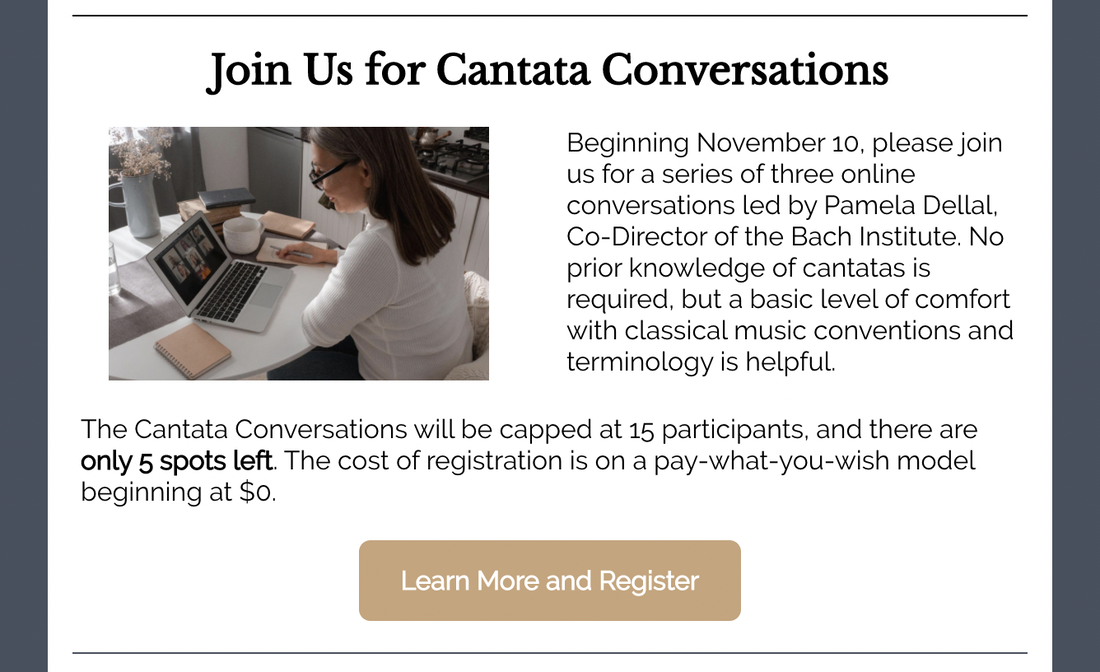
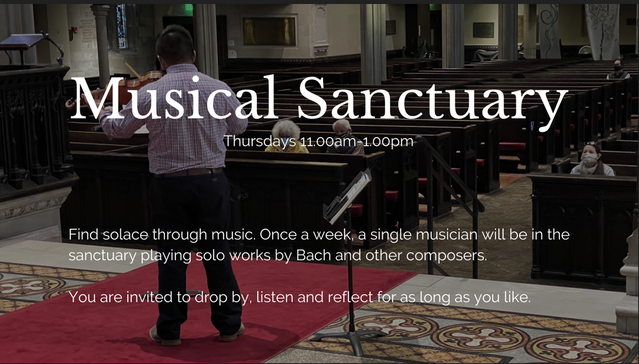
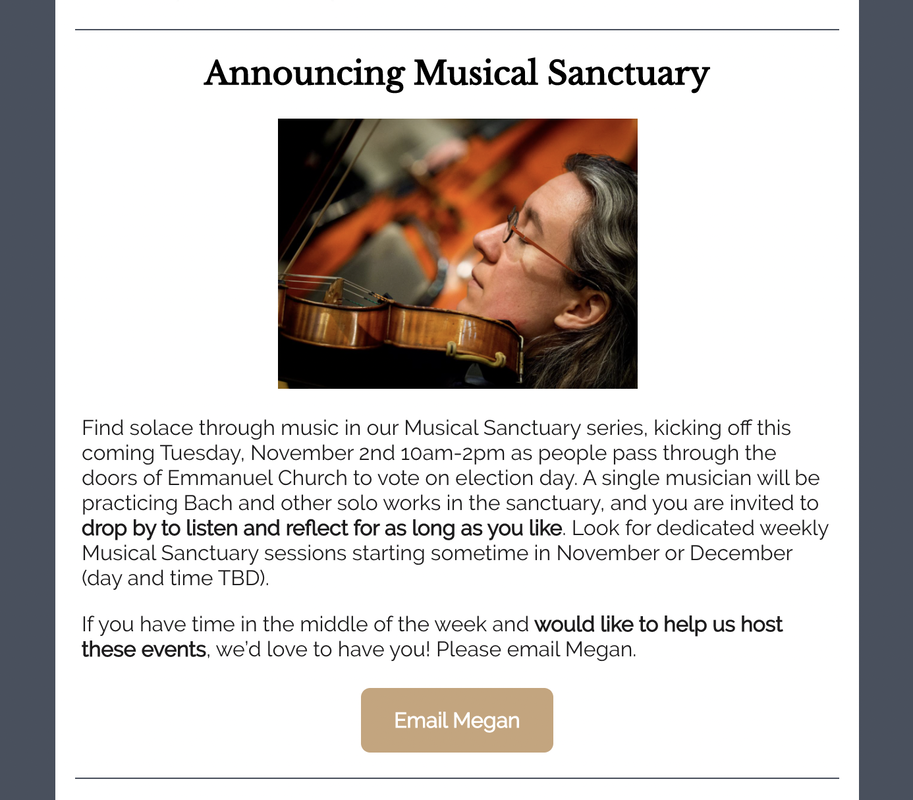
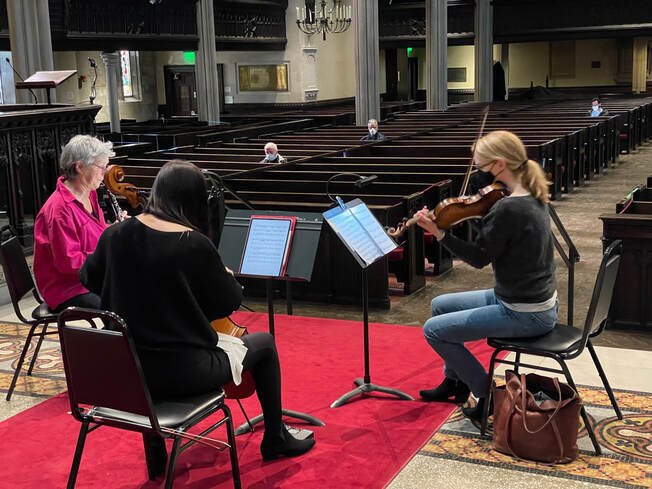
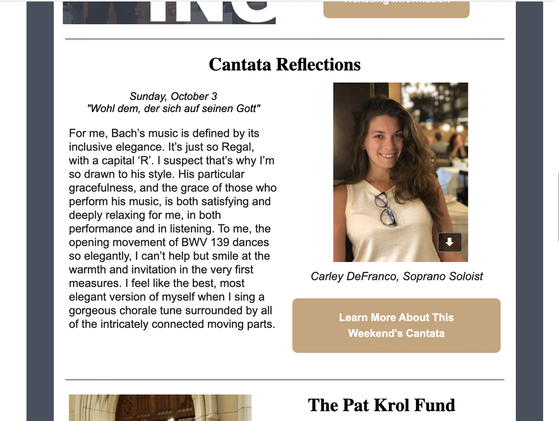
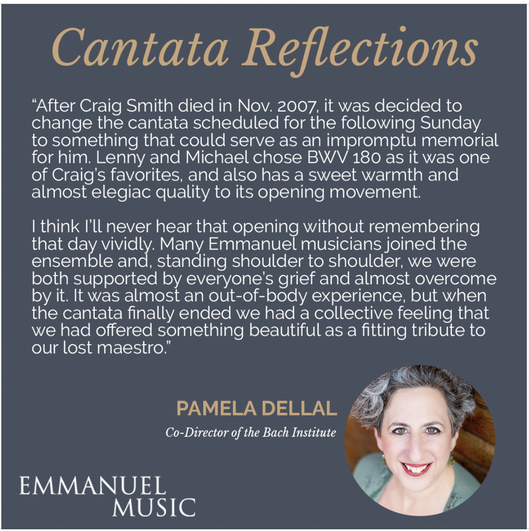
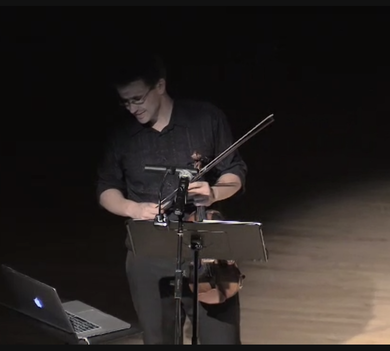
 RSS Feed
RSS Feed
